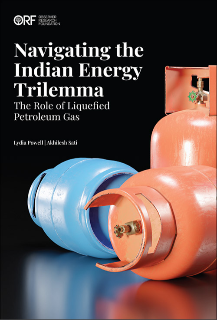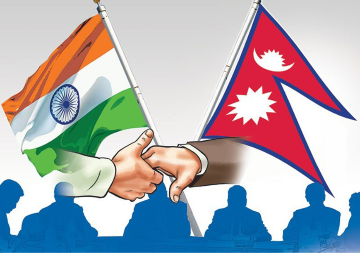Observer Research Foundation organised a round table conference titled, “Unlocking India’s mineral wealth: Policy Priorities” on 20 November, 2017 in Delhi.
The conference noted the landmark judgment of Common Cause vs. Union of India & Ors., in which the Supreme Court had passed the direction to the Government for framing a draft of a New National Mineral Policy in order to tackle the existing irregularities and loopholes in the existing National Mineral Policy, 2008.
Dr. Manoj Kumar, Visiting Fellow at ORF, presented an outline on ‘Creation of Right Policy Environment for the Minerals Sector’ for discussion and inputs of the panelists to enable preparation and publication of a white paper on the same based on inputs received fron the luminaries present at the roundtable.
Chairing the round table, P. K. Malhotra expressed concern over the existing irregularities and illegalities in the present mining scenario and emphasised the need for boosting the development of the Mineral Sector because of its importance towards building the future economy and the country as a whole.
N. N. Gautam, Advisor to ACB India Ltd. and former Advisor, UNDP, suggested the formulation of a committee having representative from all the departments to ease the grant of clearance at a single go. He also seconded the auction system followed by the World Bank which reduce the scope of negotiations once the lowest bid is accepted.
Shovik Mazumdar, the COO of Sesa Goa, expressed his concerns with respect to the exploration in mining and a need for amendments to the rules and regulations governing it. He emphasised on the importance of taking up exploration as a start-up and the need of pushing as well as financially assisting these projects. Criticising the recommendation of a single-window clearance, he emphasised on the fact that the approvals should be granted before the auctions are conducted so as to achieve in-principal approval.
Dr. Amit Kapoor, the Chairman of Institute of Competitiveness, stated that miners should indulge in communication with the local people, following the prosperity model for the overall development and betterment of the mining areas
Further U Kumar, former CMD, South Eastern Coalfields Limited, supported a fresh exploration system that needs to be initiated by the government in the backdrop of the current provisions which do not provide any compensatory measures in a risky project like exploration. Criticising the first come first serve basis being full of nepotism and corruption, he advocated for an auction system which would lease the mines for a period of 50 years.
On Similar lines R.K. Sinha, former Controller General, Indian Bureau of Mines, outlined the failure of the system of ‘first come, first serve’ basis and stated that the method of auction is the most appropriate way to allocate the minerals. However, he clarified that the method of auction also suffers from certain loopholes as successful bidders are not able to move forward due to non-issuance of various approvals required.
Naresh Chandra Saxena, former Secretary of the Planning Commission, stressed on the importance of the clearances to be made in a time bound system in a way that if clearance is not granted in the particular, it would be considered as a deemed approval.
Ankan Mitra, Head of Regulatory Affairs, Tata Steel, highlighted the classification of exploration in to Greenfield and Brownfield projects, both of which include hinderances that resulted in failure of exploration activities.
Prof. Shailendra Singh, Director, IIM Ranchi, pitched in the idea for a Public Private Partnership in policy formulation for the mining sector in order to achieve the objective of growth and sustainable development of the country through the contribution from the stakeholders in the mining sector.
T. N. Tiwary, formar Additional Secretary, Law, Government of India and Dr. Nitya Nanda from TERI also participated in the discussion.
The views expressed above belong to the author(s). ORF research and analyses now available on Telegram! Click here to access our curated content — blogs, longforms and interviews.




 PREV
PREV

